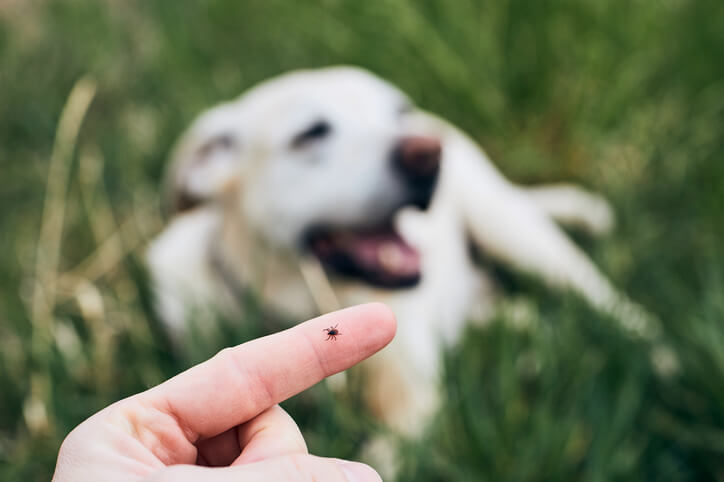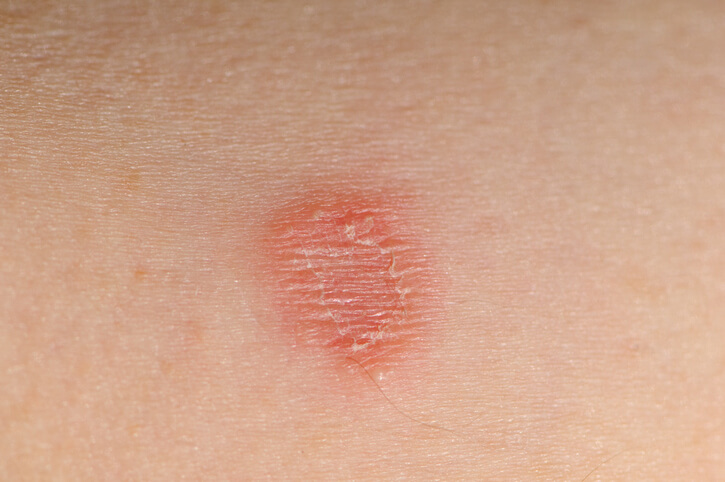No one likes to get sick, and many of us take precautions in our daily lives like washing our hands, sanitizing the shopping cart handle, or taking vitamins to keep our immune system healthy. While we may think most disease comes from other humans, our pets and other animals can also get us sick.
Common Zoonotic Diseases Spread Between Animals and Humans
Unfortunately, there are germs that can be passed between animals and people, causing zoonotic diseases (zoonoses). These diseases can be caused by bacteria, viruses, fungi, and parasites.
Zoonotic diseases can cause mild or severe illness and even death in some cases. These types of diseases are commonly passed through direct contact with blood, urine, mucous, feces, saliva, or other bodily fluids of an infected animal; being bitten by a tick, flea, or mosquito; eating contaminated food, or drinking water that has come in contact with the feces of an infected animal.
Common zoonotic diseases include:
Zoonotic influenza – This disease is caused by an influenza virus and shows symptoms such as eye infections or flu-like symptoms such as sore throat, muscle aches, and fever. Severe cases can cause respiratory diseases such as viral pneumonia or respiratory distress. This can be contracted by coming into contact with an infected animal.
Rabies– Transmitted through biting, rabies commonly causes headache, vomiting, fever, confusion, and anxiety in humans. This disease is always fatal. Prevention is the only treatment.

Tick, which can carry Lyme disease.
Lyme disease– This disease is caused by a tick bite. When ticks bite you or your pet, they transmit Borrelia bacterium that causes Lyme disease. You will notice an expanding red rash called erythema migrans, fever, fatigue, and headaches if you have contracted Lyme disease.
Leptospirosis – This is a disease caused by infection with Leptospira bacteria, which can be found in soil and water. A person who becomes infected through contact with an infected animal will experience flu-like symptoms. Infection can also cause liver or kidney disease.
Bordetella– This is a bacterium that is associated with respiratory disease in dogs. This is one of the components of the canine infectious respiratory complex, which is often referred to as kennel cough. This can be passed on to humans through contact with an infected animal, and it is more commonly passed to humans with a compromised immune system.
Roundworms– These organisms can live in or on pets or humans and are found in usually found in soil and stool. They enter the body through direct contact with the skin or through the mouth. Roundworms present with symptoms such as loss of appetite, visible worms in the stool, nausea, vomiting, and pain or discomfort in the abdomen.
Hookworms– This is an intestinal parasite that can live in the digestive system of both dogs and humans. They can infect your dog through contact with contaminated soil or through the dog eating the large when they eat dirt or lick their paws clean. These can be dangerous to puppies as they cause blood loss. An older dog may have diarrhea or show weight loss. Humans will

Ringworm infection in a human.
experience a rash where the large penetrate the skin. Heavy infections will show symptoms such as loss of appetite, abdominal pain, fatigue, and anemia.
Ringworm-Ringworm is a fungal infection of the superficial layers of the hair, skin, and nails. If infected, your pet will experience circular areas of hair loss, scabby and inflamed skin, dry, brittle
hair, and rough claws. This is due to the fact that the fungi feed on the keratin in the hair, skin, and nails. This highly infectious and can be passed through contact with the infected pet or through contact with a contaminated object. When humans become infected with ringworms, you will notice scaly ring-shaped areas on the arms, legs, buttocks, or trunk of the body.
MRSA– Methicillin-resistant Staphylococcus aureus is an infection that can occur at a surgical site, skin wound, or your pet’s ears. This is spread through contact with infected people or pets. It can be passed by coming into contact with a contaminated wound or by sharing items that have been in contact with MRSA-infected skin. This type of infection is typically warm to the touch, full of pus or drainage, and also typically presents with a fever.
Am I at Risk for a Zoonotic Disease?
Anyone can become infected with a zoonotic disease, but there are specific groups of people who are at a greater risk. These people include adults over the age of 65, those with weakened immune systems, pregnant women, and children under the age of 5.
How Can I Prevent Zoonotic Diseases?
There are a variety of ways you can keep yourself and your family safe at home and when you are outside of the home, including:
- Use bug spray, long-sleeved clothing, and long pants, or other methods of preventing bites from flea, ticks, and mosquitoes.
- Wash your hands thoroughly. Always clean your hands after spending time around animals, even if you did not have contact with them. Using soap and water is the best way to ensure your hands are clean.
- Work to avoid bites or scratches from animals through ways such as avoiding rough play. If you are scratched or bitten, clean the wound immediately.
- Handle food safely for yourself, your family, and your pets, and keep pet supplies and your pets out of the kitchen area.
- Clean up after your pets properly to prevent contamination.
- Don’t allow your children to hold pets close to their faces, kiss them, or let their pets lick their mouth or face.
Ready to Schedule Your Pet’s Next Checkup?
If your pet is due for a checkup, be sure to schedule an appointment with us today! A great way to prevent the spread of disease is to make sure your pet is happy and healthy. Our caring staff will help you do just that! Contact us today to learn more!

